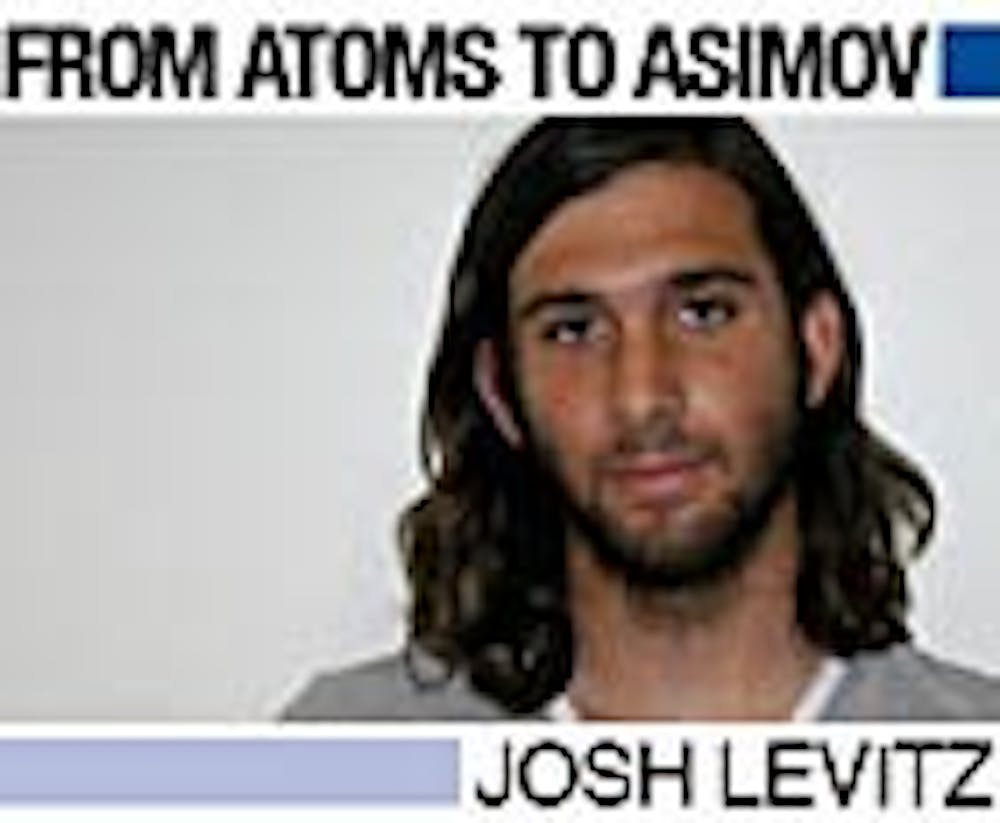Science has a monopoly on the objective knowledge of the human species, yet due to its perceived complexity, this knowledge is often withheld from the general population. Although religious zealots may disagree, ignorance can only breed catastrophe, whereas knowledge is the light that can guide humanity to a better existence.
It is for this reason that popularization of science, despite its occasional lack of precision, is incredibly important for society. With the semester winding down and excuses for not reading harder to make up, I offer a list of essential non-technical science books.
George Gamow's "One, Two, Three, Infinity" is a fantastic introduction to two of the greatest scientific achievements of the 20th century: relativity and quantum mechanics. In direct prose with informative illustrations, Gamow explains the general ideas of these theories for which all educated people should have some familiarity. Relativity freed humanity from absolute space and time, and quantum mechanics showed that our universe might be inherently probabilistic. They are fascinating theories for anyone, not just physicists.
"The Double Helix" by James Watson is an exhilarating firsthand account of the research that led to the discovery of the structure of DNA. Molecular biology is transforming our world, from genetically modified foods to medicine, and this is where the modern era began. Watson, quite a controversial and fascinating figure, writes of a major discovery in human history with such clarity and suspense that this is certainly one of the best accounts of the discovery.
Richard Dawkins has become quite a polarizing public intellectual for his atheist manifesto, "The God Delusion." However, he was at his best with the evolutionary biology classic, "The Blind Watchmaker." This book is a comprehensive debunking of intelligent design and a brilliant introduction into the beauty of evolution. The title is taken from William Paley's original argument for design, and a primary thesis is that to assert some sort of God-designed life is intellectually lazy and outdated. Notably, Dawkins' thorough explanation of the evolution of the eye is clear, concise and devastating to one of the primary arguments for design.
In "The World Without Us," Alan Weisman presents a humbling account of what would happen if humans were to vanish from the earth. He delves into the fate of New York, our nuclear reactors and all of the plastic we have carelessly dumped using sound science from geologists, chemists and biologists. Weisman presents a fascinating dichotomy between the power of nature to replenish itself and the wealth of irreversible effects humans have had on the earth.
In popular science writing, only one man deserves to be heralded as the master - the late Carl Sagan. With infinite respect, care and courage, Sagan dedicated his life to enlightening the public, protecting the planet and fighting pseudoscience. In "The Varieties of Scientific Experience: A Personal View of the Search for God," Sagan's remarks on natural theology offer an excellent primer for the philosophy of this pioneer in astronomy and the search for extraterrestrial life. Sagan makes the case for a rational exploration of religion and theology that ultimately displays that science is more satisfying than faith.
Just as scientists owe it to humanity to be educated and politically active, all educated people must be science-conscious. Students at AU, independent of their major, if scientifically illiterate, will greatly limit their contributions to the world. If there is a theme that I have tried to drive home with this column, it is that science gives us a cosmic perspective that can deeply inform the decisions we make.
Josh Levitz is a junior in the College of Arts and Sciences and a science columnist for The Eagle.





